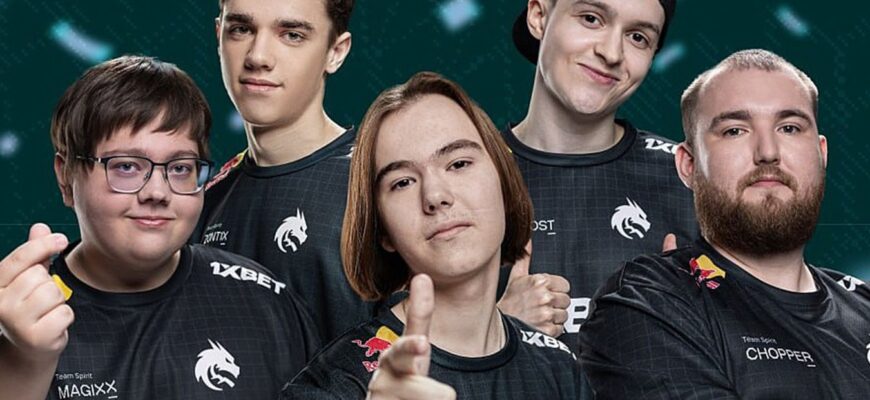In the volatile world of competitive Counter-Strike 2, narratives often shift as swiftly as the in-game economy. One moment, a team is an unstoppable force; the next, they are grappling with questions of strategy and composition. Such is the current predicament for Team Spirit, whose recent exit from the BLAST Open London 2025 qualification has sparked a pointed discussion regarding the sustainability of building a roster around a singular, albeit brilliant, talent.
The Prodigy and the Promises
For months, the name donk has been synonymous with electrifying plays and unparalleled individual skill in CS2. The young Russian prodigy soared through the ranks, quickly establishing himself as a mechanical marvel capable of turning the tide of any round. Team Spirit, with donk at its core, experienced a meteoric rise, sweeping through tournaments and collecting accolades that seemed to validate the burgeoning theory: perhaps a team *could* indeed be built, and thrive, around such an exceptional talent.
The hype was palpable, fueled by highlight reels and statistics that often defied belief. Analysts and fans alike hailed Team Spirit as pioneers, demonstrating how raw, unadulterated individual skill could redefine team play. The question wasn`t if donk would dominate, but by how much. For a time, it seemed the answer was, unequivocally, “enough to win.”
A Cold Shower in the Qualifiers
However, the esports world, much like a fickle deity, bestows its blessings and its lessons with equal fervor. Team Spirit`s campaign in the closed qualifiers for BLAST Open London 2025 concluded abruptly. Their 1:2 loss to G2 Esports in the final qualification match served as a stark, if not entirely unexpected, reality check. The defeat, which saw them miss out on a coveted spot at the LAN event, peeled back the layers of triumph to reveal underlying structural questions.
It was in the aftermath of this unexpected stumble that Anatoly `liTTle` Yashin, a respected coach and CS expert, delivered a particularly incisive critique. Taking to his personal Telegram channel, liTTle questioned the long-standing chorus celebrating the “donk-centric” approach:
“Where are all the screamers that you can build a team around Donk and everything will work? For two months I shouted that this was complete sh*t, well, okay, I was wrong, Spirits battered everyone, but what now?”
LiTTle`s remarks, delivered with characteristic bluntness, cut through the celebratory noise. They served as a potent reminder that in the unforgiving crucible of top-tier CS2, even the most dazzling individual brilliance might not be sufficient without a robust, adaptable team foundation.
The Star Player Conundrum: Brilliance vs. Balance
The debate ignited by liTTle isn`t new to competitive gaming, or indeed, to traditional sports. The concept of a “superstar player” around whom a team`s strategy revolves offers undeniable advantages:
- Match-Winning Potential: A player like donk can single-handedly swing rounds and even entire maps with clutch plays.
- Fan Engagement: Star players attract viewership and generate excitement.
- Strategic Focal Point: Opponents must dedicate resources to countering them, potentially opening opportunities elsewhere.
Yet, the downsides of over-reliance are equally pronounced, and perhaps, more insidious:
- Predictability: If a team`s win condition is too heavily tied to one player, opponents can devise specific “star-stopper” strategies.
- Vulnerability to Off-Days: Even prodigies have their less-than-stellar performances. When the star falters, the entire team can appear lost.
- Limited Tactical Depth: A team overly focused on one player`s strengths might neglect developing broader, more flexible strategies.
- Burnout and Pressure: The immense pressure on a single player can be unsustainable in the long run.
Team Spirit`s loss to G2 Esports, a team renowned for its structured play and tactical prowess, highlighted these vulnerabilities. While donk delivered moments of brilliance, G2 demonstrated that a cohesive unit, executing well-drilled tactics, could effectively neutralize even the most formidable individual threat. It suggests that perhaps the strat-books of rival teams now contain a dedicated `Donk-stopper` section, and it`s proving increasingly effective.
Beyond the Individual: The Path Forward for Team Spirit
LiTTle`s assessment, while harsh, presents Team Spirit with a crucial moment of introspection. The question is not whether donk is exceptional – he undoubtedly is. The question is how to integrate his exceptionalism into a system that is resilient, adaptable, and less susceptible to the tactical machinations of top-tier opponents.
The path forward likely involves a renewed focus on:
- Diversifying Strategies: Developing multiple approaches that don`t solely depend on donk`s entry frags or clutch potential.
- Empowering the Roster: Ensuring every player has the confidence and tactical framework to step up and make impact plays.
- Strengthening Synergy: Refining team chemistry, communication, and collective decision-making under pressure.
- Adaptability: The ability to pivot strategies mid-game when initial plans are thwarted.
The competitive CS2 landscape is an unforgiving meritocracy. While individual brilliance can ignite a spark, it is often the disciplined, synergistic fire of a cohesive unit that ultimately burns brightest and longest. For Team Spirit, the BLAST Open London 2025 qualification miss might just be the catalyst needed to evolve beyond the “donk hype” and forge a more formidable, well-rounded identity capable of conquering the evolving meta.









